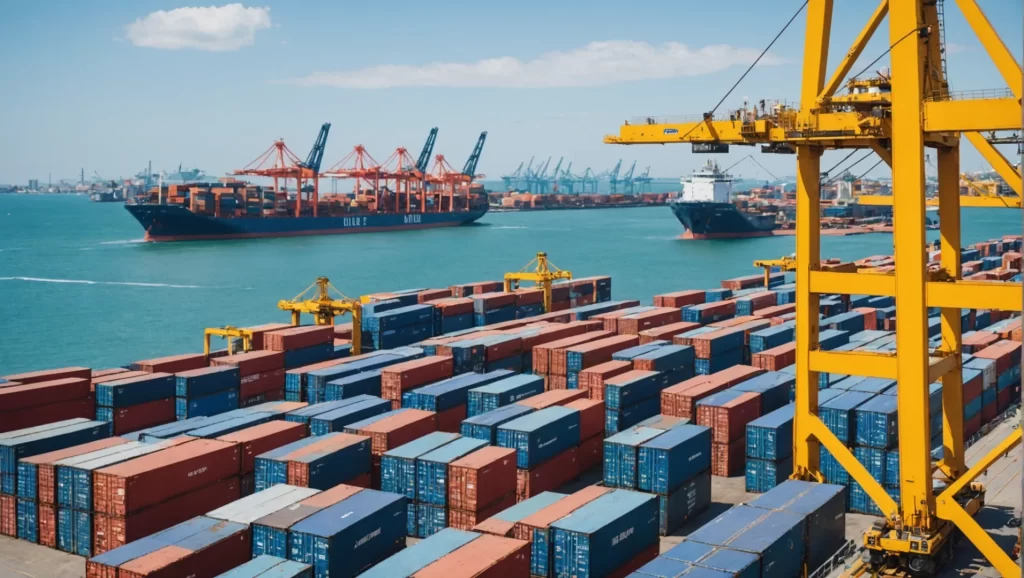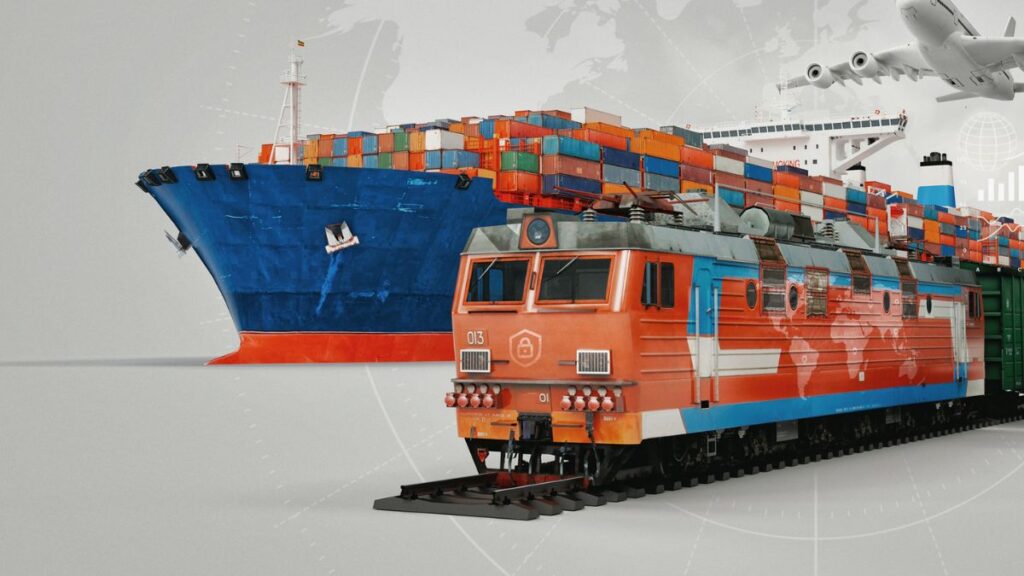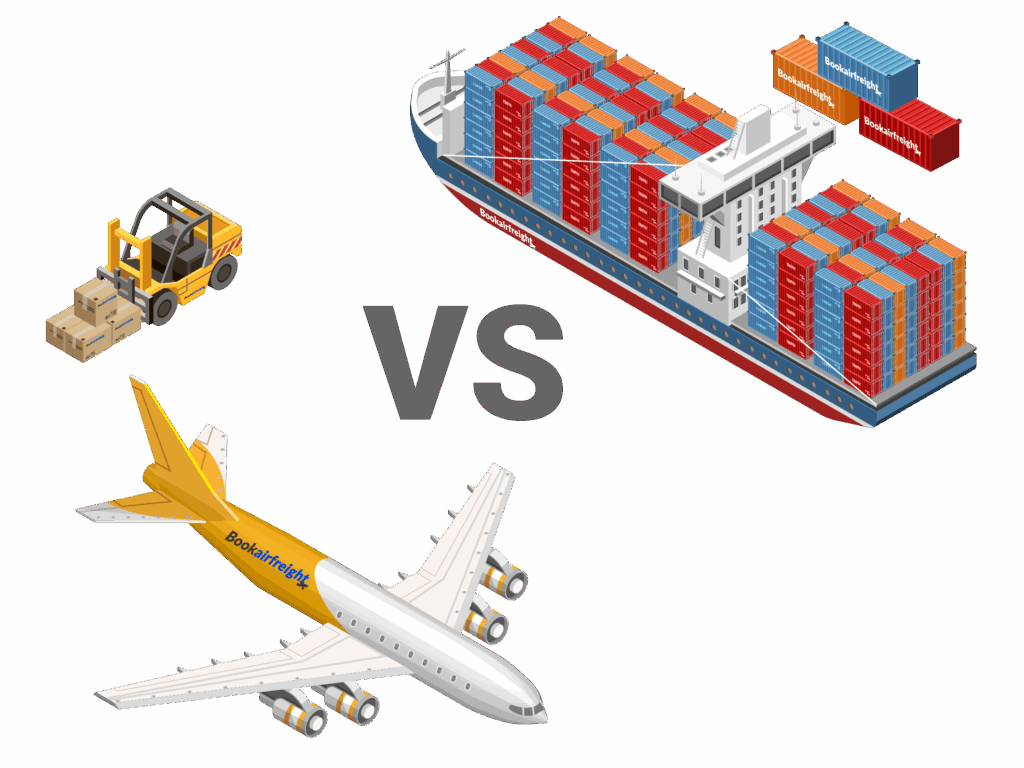- By TOP CHINA FREIGHT
- September 4, 2025
- Shipping
Table of Contents
Working with a freight forwarder China to Italy helps importers manage shipping routes, customs, and delivery schedules with fewer risks. Companies moving goods across these regions face challenges like long transit times, container shortages, and customs delays. However, a professional forwarder streamlines every step from factory pickup in China to warehouse delivery in Italy.

What role does a freight forwarder China to Italy play?
A freight forwarder organizes shipping on behalf of importers and exporters. They arrange bookings with carriers, handle customs paperwork, and coordinate trucking or warehousing. Additionally, they advise on Incoterms, cargo insurance, and packaging standards.
For China–Italy trade, forwarders use established carrier networks, offering both sea and air solutions. Their role is not just transport; they also provide compliance support and risk management. Therefore, they help businesses avoid fines, delays, and higher costs.
What are the main shipping methods from China to Italy?

| Shipping Mode | Average Transit Time | Cost Estimate | Pros | Cons |
|---|---|---|---|---|
| Sea Freight (FCL) | 30–40 days | $2,000–$3,500 per container | Best for large cargo, lower cost | Long transit time |
| Sea Freight (LCL) | 35–45 days | $70–$90 per CBM | Good for small cargo | Longer consolidation process |
| Air Freight | 5–8 days | $5–$8 per kg | Fast delivery | Higher cost |
| Rail Freight | 18–22 days | $3,000–$4,200 per container | Balanced option, eco-friendly | Limited capacity |
| Express Courier | 3–5 days | $8–$12 per kg | Reliable for small parcels | Not suitable for bulk |
Choosing depends on urgency, volume, and budget. Sea freight is common, while rail freight is growing as an alternative.
How much does shipping from China to Italy cost?
Costs change with fuel, demand, and season. A forwarder helps negotiate rates and reduces hidden charges.
| Route | 20ft Container | 40ft Container | Air Freight (per kg) |
|---|---|---|---|
| Shanghai to Genoa | $2,200 | $3,800 | $6.50 |
| Shenzhen to Venice | $2,000 | $3,600 | $6.80 |
| Ningbo to Trieste | $2,100 | $3,700 | $6.40 |
These estimates exclude customs duties, port handling, and local trucking. Therefore, importers must budget additional costs.
What customs documents are required in Italy?

Forwarders guide clients through customs clearance.
Typical paperwork includes:
| Document | Purpose |
|---|---|
| Bill of Lading | Evidence of shipment |
| Commercial Invoice | Declares value of goods |
| Packing List | Details shipment contents |
| Certificate of Origin | Shows where goods are produced |
| Customs Declaration | Filed for clearance |
| Import Licenses | Required for restricted goods |
Without accurate documents, cargo may be delayed or fined. Therefore, working with an experienced forwarder is critical.
Why choose sea freight over air freight?

Sea freight is cost-effective for bulky cargo, while air freight suits urgent deliveries.
| Factor | Sea Freight | Air Freight |
|---|---|---|
| Transit Time | 30–40 days | 5–8 days |
| Cost | Lower per unit | Higher per unit |
| Cargo Type | Heavy, bulky, non-urgent | Small, urgent, high-value |
| Reliability | Prone to port delays | More stable schedule |
Many businesses combine both, shipping urgent parts by air and bulk goods by sea.
How long does shipping take from China to Italy?
Transit depends on route and method:
| Mode | Transit Time |
|---|---|
| Sea Freight | 30–40 days |
| Rail Freight | 18–22 days |
| Air Freight | 5–8 days |
| Courier | 3–5 days |
Additionally, customs and inland trucking may add 3–7 days. Planning buffer time ensures smoother deliveries.
What factors influence shipping costs?
Peak periods raise prices
Oil prices impact ocean and air freight
Shortages increase spot rates
Based on HS codes and cargo value
Can cause storage and demurrage fees
Case Study: Electronics shipment to Milan
An Italian importer of electronics relied on air freight, leading to high expenses. By switching to a freight forwarder China to Italy specializing in sea–rail solutions, the company cut shipping costs by 35%. Transit time increased by 10 days, but the savings allowed them to expand distribution and improve margins. This shows how forwarder expertise balances cost and efficiency.
Should businesses use rail freight from China to Italy?
Rail freight is gaining popularity due to its balance of speed and cost. The China–Europe rail network passes through Central Asia and Eastern Europe before reaching Italy. Although capacity is limited, rail freight is eco-friendly and reduces delivery times compared to sea freight. It is ideal for medium-value goods like machinery, auto parts, and consumer electronics.
What services do freight forwarders provide beyond transport?
Forwarders offer:
- Cargo insurance against loss or damage.
- Warehousing for storage in Italy or China.
- Customs consulting to manage duties and HS codes.
- Consolidation for small shipments into one container.
- Last-mile delivery within Italy.
These services ensure cargo moves smoothly from factory to end customer.
Conclusion
Working with a freight forwarder China to Italy ensures smoother logistics, lower costs, and reliable compliance. Businesses benefit from flexible shipping methods, expert customs handling, and better supply chain planning. Choosing the right forwarder can save money, reduce delays, and improve long-term trade performance.
Need a Shipping Quote?
If you want expert guidance and peace of mind, our team is ready to assist.
TJ China Freight offers tailored solutions to help businesses of all sizes ship more reliably from China.

FAQs
Q1:How do I choose the best freight forwarder China to Italy?
Select a freight forwarder China to Italy with strong carrier contracts, LCL/FCL expertise, and proven customs clearance experience to ensure cost-effective and timely shipments.
Q2:Can small businesses use LCL shipping to Italy?
Yes, LCL shipments through a freight forwarder China to Italy allow small businesses to share container space, lowering costs while ensuring reliable customs clearance and delivery.
Q3:How long does air freight from China to Italy take?
Air freight via a freight forwarder China to Italy typically takes 5–8 days, including customs clearance and last-mile delivery, ideal for urgent or high-value shipments.
Q4:Do freight forwarders handle customs clearance in Italy?
Yes, freight forwarders China to Italy manage customs documentation, HS codes, and import duties, ensuring smooth clearance and avoiding delays or fines at Italian ports.
Q5:Are cargo insurance services available with freight forwarders
Yes, freight forwarders China to Italy provide cargo insurance to protect shipments against damage, loss, or theft, ensuring safe delivery from China to Italian warehouses.
